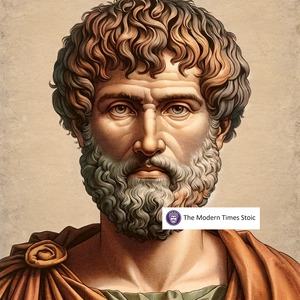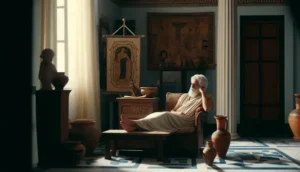In letters from a stoic 21, Lucilius seems to be wanting to depart his job. It’s known that Lucilius was a procurator in Rome. What was not clear is that if he was departing his job for retirement, which Seneca advised him on letter 19, or if he was trying to get another job. Seneca told Lucilius that if he was trying to find an “ideal state of calm” by departing his job then he has forgotten that the ultimate source of peace is from within.
He then gave this analogy. “There is the same difference between these two lives as there is between mere brightness and real light; the latter has a definite source within itself, the other borrows its radiance; the one is called forth by an illumination coming from the outside”. The stoics have repeatedly said that any pleasure that we derive from external things such as power, fame, and wealth is fleeting because they can be taken anytime from us by Fortune. The only lasting source of happiness, one that cannot be taken from us, is our state of mind, with the right perceptions, and by practicing virtues.
The next key idea of the letter is a clever one. Seneca said that if we wanted to increase anything that we wish, we have to decrease the very desire that made us crave those things. To make a point he quoted from a letter Epicurus sent to his friend Idomeneus “If you wish, to make Pythocles rich, do not add to his store of money, but subtract from his desires…if you wish Pythocles to have pleasure for ever, do not add to his pleasures, but subtract from his desire”.
“If you wish, to make Pythocles rich, do not add to his store of money, but subtract from his desires...if you wish Pythocles to have pleasure for ever, do not add to his pleasures, but subtract from his desire”
Seneca Tweet This Quote
The problem is not that we desire things, but that we left our desires uncheck. Our wants are insatiable and if we don’t keep this simple human fact in our mind our desires will make us miserable. We become prisoners of our desires. To free ourselves from this infinite loop, the stoics have always taught us to practice temperance, one of the four stoic cardinal virtues.
***** Letters from a Stoic Key Takeaways is a collection of short key takeaways from the letters sent by Seneca to Lucilius. Read each letter’s key takeways here .







